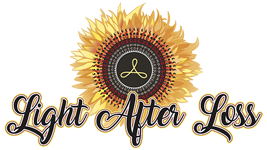Ralph Waldo Emerson said, “ Do not go where the path may lead, but instead go where there is no path and leave a trail.” Having spent years of my clinical career doing suicide prevention and intervention work, looking the other direction as now a suicide loss survivor is discombobulating to say the least. The number one question I get from people is, “Do you still believe in prevention?” The answer is simply, “Yes.” I just now paint prevention with a narrower brush. Statistically, the odds are in our favor if someone who is having a suicidal crisis can access help at that time. Odds I will play every day if it means someone else doesn’t have to walk in these very uncomfortable shoes of suicide loss. That being said, with my current focus being on supporting survivors of suicide loss, instead of just pulling people out of the river I swim vigorously upstream to figure out why they are falling in to the water to begin with. I’m always the one around the table, or in the room, looking in the wrong direction. Or am I?
Survivors of suicide loss are at increased risk of taking their own lives. Depending on the relationship, significantly higher. Nearly 50% higher in some cases. Through my own experience, I believe this is because of the unique combination of grief and trauma related to suicide loss. Mostly the trauma. Not to mention, the limited resources and stigma surrounding such a death. I could write a whole dissertation on this alone, but let’s just stick with the facts. Higher is higher. Also through my own experience, I believe that with the proper short and long term support, loss survivors are likely never to become suicidal in the first place. I believe that suicidal thoughts and behaviors are a result of the inability to manage the unhealed trauma suicide loss survivors experience. In the words of my dear friend Dr. Jamie Marich, “You can heal from trauma.” If you can heal from trauma. Then Postvention is Prevention. The very mantra of Light after Loss.
Looking in the other direction. Swimming up stream (or a raging river) like a salmon trying to not become breakfast is more daunting than expected. It’s pretty isolating. It’s pretty lonely. It’s pretty confidence crushing. Not to mention nerve wracking. Just to name a few. Being one of those fish swimming upstream makes you an easy target for the hungry bear. The hungry bear being privileged policy makers who think they know, but at the end of the day go home to their wife and 2.7 kids who have never had to sit in the lobby of the local crisis center. Or call the police to their house. Or the coroner. Or a BioScene crew. So tell me again what you think you know?
That all being said. I was one of them. I am still one of them. Privileged to know all the resources. Privileged to have access. Privileged to have choices. Privileged to now have hindsight enough to know ultimately, I didn’t know. Making policies and procedures based on privilege not purpose.
If I knew then what I know now. Light after Loss is a purposeful example of everything I thought I knew turned to everything I know now. I believe in Evidence-Based. I implement best practice (if it exists). Did I mention I still believe in prevention? I also know that while we spend millions of dollars and hours on data and research to figure out what works best, people are suffering, people are dying (suicide rate continues to rise with evidence based prevention), and postvention is prevention. For that reason, I will sit in meetings listening to privileged policy makers talk about what they think they know, while I blaze a trail to walk with the rest of us who actually do.

